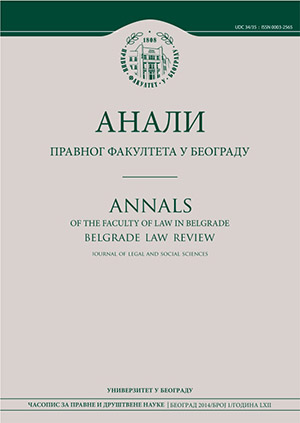ПОРЕСКА СТРУКТУРА И КОРУПЦИЈА
TAX STRUCTURE AND CORRUPTION
Author(s): Gordana Ilić-Popov, Dejan PopovićSubject(s): Law on Economics, Fiscal Politics / Budgeting, Corruption - Transparency - Anti-Corruption
Published by: Правни факултет Универзитета у Београду
Keywords: Тax structure; Аdministrative corruption; Corruptive state capture; Corruption factors; Modes of tax assessment;
Summary/Abstract: In the article an analysis of the impact of corruption, both administrative and state capture, on the tax structure is carried out. The authors established a negative correlation between the degree of corruption and the height of the effective tax burden, while isolating a simultaneous directly proportional impact of the nominal tax burden (which could reflect state intervention – the main corruption factor) on the scope of corruption. The effects of corruption on the decrease of individual taxes’ share in GDP are diversified, with impact on direct taxes as a whole being more observable. The mode of tax assessment significantly determines exposure of certain tax to the administrative corruption: it is generally larger in case of taxes assessed by the decision of the competent tax officials who are carrying out both assessment and audit, while in the case of self-assessment and withholding they just perform audits implying limited exposure to corruption. Corruptive state capture is present in the case of taxes which are important for influential corruptors. That is why in Serbia laws preventing taxation of capital gains or heavier taxation of dividends and other income paid to non-residents located in the tax havens were adopted, while by-laws which should have enabled implementation of prescribed lump sum taxation based on external signs of wealth have not been enacted. The authors concluded that the anti-corruption strategy should rely on the increasing role of self-assessment, which could reduce the room for administrative corruption. Unclear and imprecise formulations of the tax norms facilitate corruption, because they create room for arbitrariness in interpretation and implementation of the laws and by-laws. It is therefore necessary to surpress discretion, simplify tax procedure and diminish the number of tax reliefs.
Journal: Анали Правног факултета у Београду
- Issue Year: 62/2014
- Issue No: 1
- Page Range: 5-22
- Page Count: 18
- Language: Serbian

